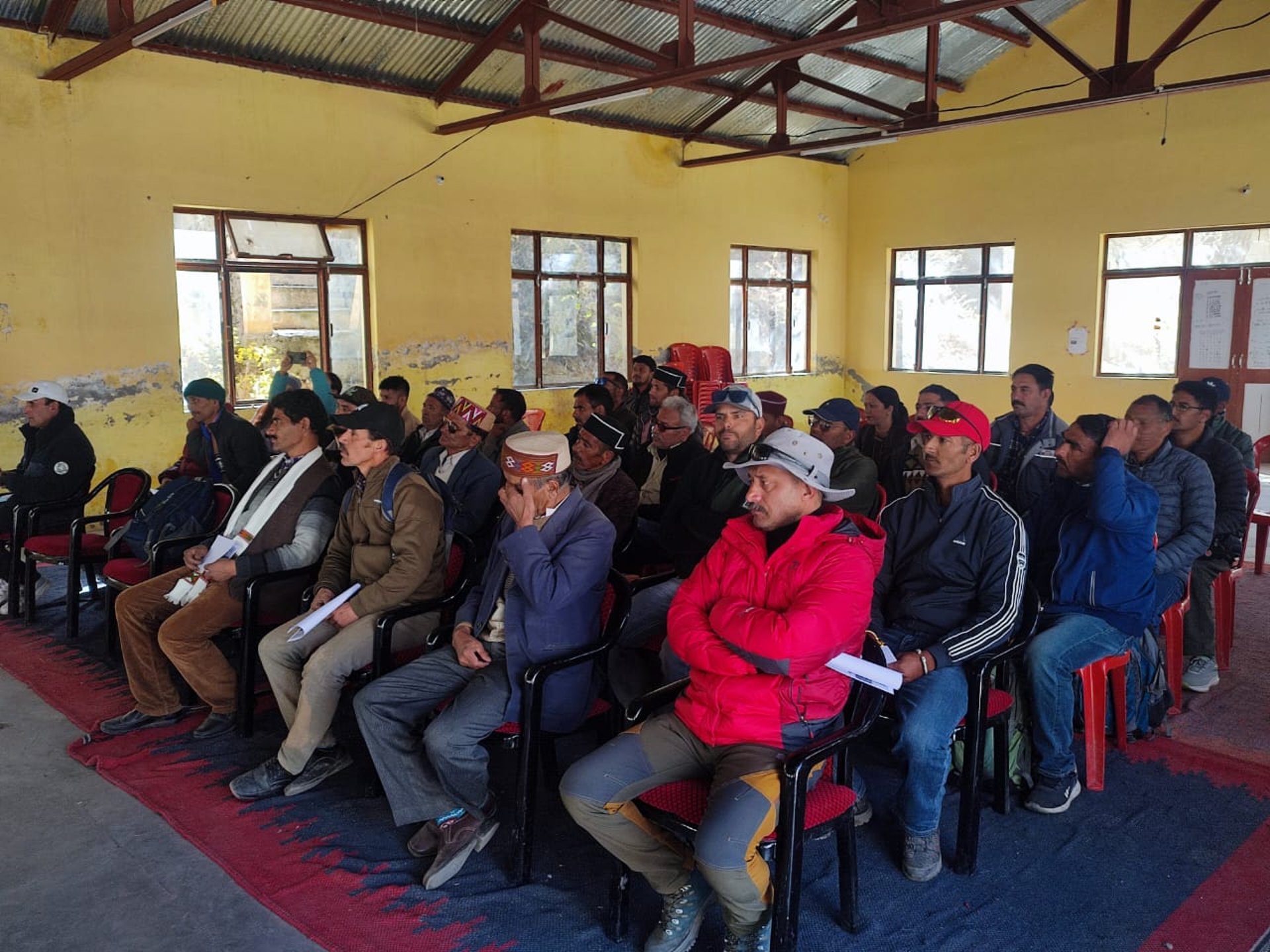
09.11.24
Strengthening Community Forest Resource Rights in Lahaul: A Collaborative Effort
The Scheduled Tribes and Other Traditional Forest Dwellers (Recognition of Forest Rights) Act, 2006—commonly referred to as the Forest Rights Act (FRA)—has been in place for approximately two decades in Himachal Pradesh. However, its implementation has been slow, particularly in tribal areas, such as Lahaul.
To accelerate FRA implementation in Lahaul, the District Administration of Lahaul and Spiti, in collaboration with the Bharti Institute of Public Policy (BIPP) at the Indian School of Business (ISB), organised a two-day orientation programme in Keylong and Udaipur. The sessions aimed to equip key stakeholders with the knowledge and tools required for filing Community Forest Resource Rights (CFRR) claims.
This initiative marks a step towards systematic CFRR claim generation, capacity building, and institutional support. The district administration has also allocated office space for an FRA Cell to assist Gram Panchayats (GPs) and Forest Rights Committees (FRCs) in the process.
FRA Orientation in Keylong: 7 November 2024
The first session in Keylong was attended by the Block Development Officer (BDO), Dr Vivek Guleria; Sadar Kanungo (senior land records supervisor), Mr Sher Singh; Sub-Divisional Level Committee (SDLC) representatives, GP Secretaries from 10 Panchayats; Patwaris (village-level land record officers); and FRC representatives.
The session began with an overview of the Memorandum of Understanding (MoU) signed between BIPP–ISB and the district administration, outlining its primary objectives:
facilitating large-scale filing of CFRR claims in Lahaul;
supporting the formation of Community Forest Resource Management Committees (CFRMCs) and developing sustainable forest management plans; and
establishing women-led enterprises focused on seasonal forest products (SFPs) to create economic opportunities
.
The BIPP–ISB team then provided a historical background on the FRA and highlighted the challenges in its implementation. While Individual Forest Rights (IFR) claims have been processed in some areas, CFRR claims remain largely unaddressed. A step-by-step demonstration of the CFRR claim-filing process was conducted, emphasising the central role of FRCs. The FRA Cell will provide ongoing training, resource materials, and technical support. However, FRCs are expected to lead the claim-filing efforts at the village level.
The team also introduced digital tools for claim tracking and documentation, which could potentially be adapted for Himachal Pradesh. Participants shared updates on the current status of claims in their villages, noting that while IFR claims had been filed, CFRR claims had yet to gain momentum. The BDO stressed that, although the FRA grants communities legal rights over forest resources, it also places responsibilities on them for conservation and sustainable management.
To improve coordination, a WhatsApp group was set up to connect GP Secretaries with the FRA Cell. The session concluded with a resolution to conduct village-level meetings with all FRCs to review claim status, reconstitute inactive committees, and initiate the CFRR claim-filing process.
The second session in Udaipur was led by the Sub-Divisional Magistrate (SDM), Mr Keshav Ram, and the Naib Tehsildar (Deputy Tehsildar), Mr Mehar Singh. The meeting was attended by the FRC representatives, SDLC members, GP Secretaries, and officials from the revenue and forest departments. It reinforced similar themes as the Keylong session while addressing district-specific challenges.
Mr Amit Upmanyu from BIPP–ISB highlighted the critical gaps in FRA implementation, noting that procedural complexities have hindered the filing of CFRR claims. Referring to Pangi tehsil, where BIPP helped file 48 CFRR claims, he stressed that a collaboration between local administration and community institutions could bring similar success in Lahaul.
Mr Satya Prasanna from BIPP–ISB provided a technical breakdown of the CFRR claim-filing process, detailing the roles of FRCs, SDLCs, and District Level Committees (DLCs). He emphasised that, while the FRA Cell will facilitate training and provide resource materials, FRCs must take the lead in filing claims at the village level.
SDLC members updated participants on the forthcoming SDLC meeting, where 48 IFR claims were scheduled for review and approval. However, they observed that CFRR claim generation remained critically low and needed urgent prioritisation.
FRC representatives shared the challenges they faced, including documentation gaps and procedural roadblocks. Many villages had only initiated IFR claims, with little progress on CFRR claims.
The Naib Tehsildar underscored the importance of CFRR claims, calling for collective action to expedite the process. The SDM highlighted the economic potential of Lahaul's biodiversity, including herbs, medicinal plants, and SFPs. He stressed that CFRR provides communities with the legal framework to sustainably manage and benefit from forest resources.
To ensure institutional continuity, the SDM operationalised the FRA Cell in Udaipur and allocated office space within the tehsil office. The meeting concluded with an agreement to conduct village-wise meetings with FRCs to:
assess the status of FRCs and reconstitute non-functional committees;
review claim progress and documentation requirements; and
finalise a roadmap for CFRR claim filing across Lahaul.
The FRA orientation programmes in Keylong and Udaipur marked an important step towards securing community tenure in Lahaul. By establishing a dedicated FRA Cell, providing technical training, and setting clear action points for FRCs, the initiative has laid the foundation for large-scale CFRR claim submissions.
With structured support from the district administration and BIPP–ISB, GPs and FRCs now have the institutional backing needed to navigate the claim-filing process. Moving forward, efforts will focus on scaling up CFRR claim submissions, providing continued training, and integrating technology for streamlined tracking.
Through sustained collaboration, communities in Lahaul can assert their legal rights over forest resources while safeguarding ecological sustainability and enhancing economic well-being.
